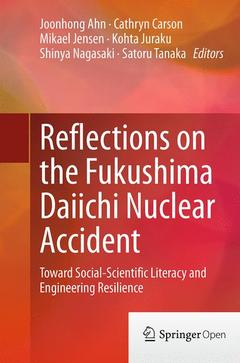Description
Reflections on the Fukushima Daiichi Nuclear Accident, Softcover reprint of the original 1st ed. 2015
Toward Social-Scientific Literacy and Engineering Resilience
Coordinators: Ahn Joonhong, Carson Cathryn, Jensen Mikael, Juraku Kohta, Nagasaki Shinya, Tanaka Satoru
Language: English
Subjects for Reflections on the Fukushima Daiichi Nuclear Accident:
Publication date: 09-2016
Support: Print on demand
Publication date: 12-2014
454 p. · 15.5x23.5 cm · Hardback
Description
/li>Contents
/li>Comment
/li>
This book focuses on nuclear engineering education in the post-Fukushima era. It was edited by the organizers of the summer school held in August 2011 in University of California, Berkeley, as part of a collaborative program between the University of Tokyo and UC Berkeley. Motivated by the particular relevance and importance of social-scientific approaches to various crucial aspects of nuclear technology, special emphasis was placed on integrating nuclear science and engineering with social science. The book consists of the lectures given in 2011 summer school and additional chapters that cover developments in the past three years since the accident. It provides an arena for discussions to find and create a renewed platform for engineering practices, and thus nuclear engineering education, which are essential in the post-Fukushima era for nurturing nuclear engineers who need to be both technically competent and trusted in society.
Comprehensive, yet concise summary about the Fukushima Daiichi accident from various viewpoints including technological, organizational, societal and ethical
Views by various generations and countries, including graduate students, young researchers and faculty members, as well as senior faculty members and their evolution during and after the accident are presented as a basis for considering future nuclear engineering education
Future directions for education of nuclear engineers, who will become technically competent and trusted by stakeholders in the society
Includes supplementary material: sn.pub/extras




